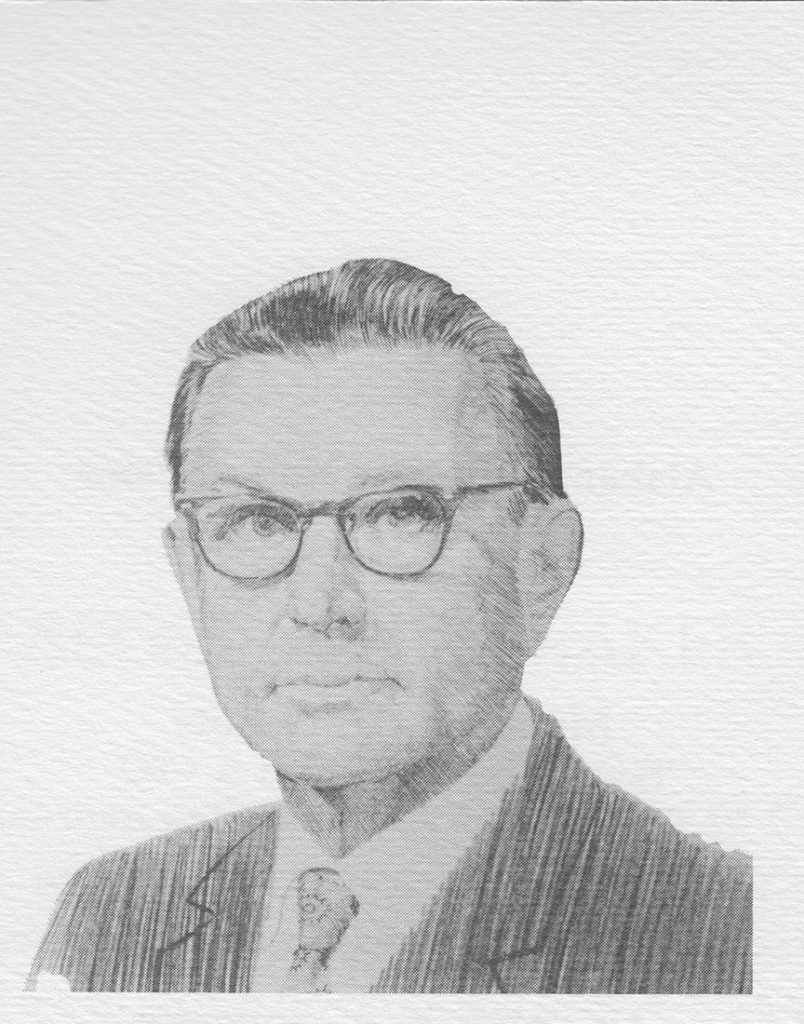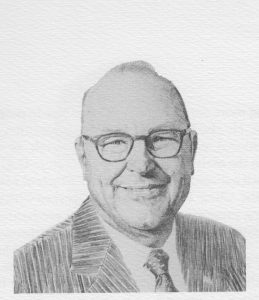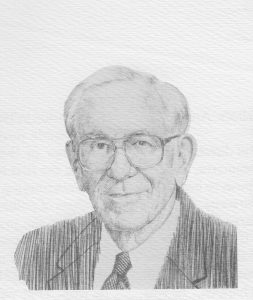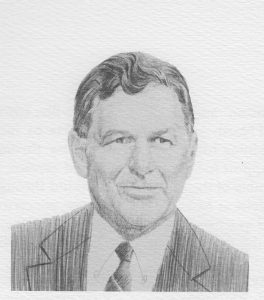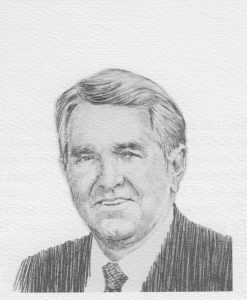Marshall B. Durbin, Sr. was the sort of business visionary blessed with the ability to turn his dreams into the reality of accomplishments. Born to O.C. Durbin and Ola Culp Durbin February 27, 1901, in Chilton County, Alabama, Marshall Durbin, Sr. passed away in November of 1971, leaving behind him then four brothers, five sisters, a widow, a son, and what is now one of the top poultry companies in the United States, with facilities in three states, markets as far-flung as Russia and the Far East, annual sales of about $200 million, and more than 2,200 employees.
To gain a more complete understanding of Marshall Durbin, Sr., it helps to turn the pages of history back to the late 1920s, when the enterprising young Alabamian – whose formal education ended at third grade – moved off the family farm to the big city of Birmingham to enter the real estate business. But the stock market crash of October 1929, followed by the Great Depression, led him quickly to the conclusion that this would not be the most profitable course to follow. Reviewing his options, Mr. Durbin decided that regardless of economic conditions, “People will want to eat.” So, in 1930, with $500 in funds borrowed from his bride (the late) Eula Sims Durbin, he established a retail fish stand. Two years later, he added poultry – and a second stand.
From those small retail stands Marshall Durbin Companies grew into its present-day status as a vertically integrated company, complete with its own hatcheries, breeder flocks, contract growers, warehouses, processing plants, cooking plants, feed mills, fleet, and distribution facilities. The growth in Marshall Durbin, Sr.’s business was mirrored by that of the Alabama poultry industry, which today has a major impact on the state’s economy. By producing more than 882 million broilers, it provides employment for some 55,000 Alabamians and income for almost 4,000 farmers – and has a total industry impact of almost $7.5 billion.
During his years of industry leadership, Mr. Durbin actively supported organizations that would contribute to its growth – and the growth of his state. For example, he was a cofounder of the Southeastern Poultry and Egg Association, served as president of the Alabama Poultry Processors Association, and was co-founder of the Alabama Poultry Industry Association. On the national level, he was a co-founder of the National Broiler Council and the first president of the National Broiler Marketing Association, plus he served 15 years as a member of the Board of Directors of the Institute of American Poultry Industries.
“His principal business philosophy was hard work and lots of it,” remembers Marshall B. Durbin, Jr., who succeeded his father as head of Marshall Durbin Companies after working in the business with him for many years. “In the early years, he would be on the streets making personal calls to hotels and restaurants at 4 a.m. – calling on the chefs in person. There was a lot of competition, and often the company that got the business was the first one there.
“He always tried to be the first one there.” Another place he came in first was in his belief that chicken could be a viable business in the South. In the pre-World War II era, the Midwest seemingly had a lock on the market due to the producers’ proximity to ample supplies of corn and grain. Mr. Durbin worked long and hard to help convince railway companies to move to larger rail cars and concurrently reduce rates, selling them on the argument that by the reduction they could increase volume, and profits. This led to a shift in agricultural economics, with the South producing more chickens and the Midwest focusing its efforts on growing more corn and soybean to feed those chickens. He also led the way in promoting the nutritional value of chicken; it was at his urging in the early 1960s that the National Broiler Council initiated, with Kellogg’s Corn Flakes and the Cling Peach Association, a joint advertising program centered around this theme and aimed at women’s magazines.
Marshall Durbin, Jr. also remembers his father, who over the years furthered his education with such readings as Plutarch’s Lives and Will Durant’s The Story of Civilization, as a fair man. “He was a good leader – a fair leader. I remember him as stern but friendly. Of course, as happens in most businesses we sometimes disagreed on how things should be done because of the generational differences. But I can remember that for a while after he died when I had a problem, I would still find myself getting up and going into his vacant office to ask for advice … by then I had learned that his counsel was generally right.”
The son says he believes his father, who in his later years found time for fishing and always reserved his Sundays to take his granddaughters to the zoo and then out for hamburgers, would most like to be remembered for the way he helped set the course for the poultry industry in not only Alabama and the Southeast but in the United States.
Perhaps Marshall Durbin, Sr.’s most significant legacy in that regard stemmed from his tenure on the United States Department of Agriculture National Advisory Committee in the middle 1960s. At the time, the USDA was in the process of introducing a proposal to impose production quotas and price controls on the poultry industry. Having seen what a detrimental effect similar policy measures had wreaked on the cotton industry; Mr. Durbin used his membership on the National Advisory Committee to position himself in the leadership of the opposition to quotas.
The result of those months of work in Washington, D.C., are still felt today. Thanks to the efforts of Marshall Durbin, Sr., and those who worked with him, no lids were imposed on poultry production, and unlike King Cotton, long ago dethroned in the world market, the poultry business has grown exponentially. For example, when Mr. Durbin went to Washington to first battle for this cause, the United States was producing 2.3 billion chickens annually, while in 1995 some 7.3 billion birds were produced. And over the years, Alabama has been the beneficiary of much of this growth – as is evidenced by the fact it is now the third-largest poultry-producing state in the nation.
Even 25 years ago the relevance of Marshall Durbin Sr.’s national policy work in D. C. was well known. As then said by the Southeastern Poultry Times, “His influence there was credited with helping to keep the poultry industry free of production and price controls and today the poultry industry is among the remaining ‘free enterprise’ industries of agriculture.”
Around the state, his efforts were also well recognized, as evidenced by his 1969 induction into the Alabama Poultry Hall of Fame. And upon his death in 1971, the trade magazine Broiler Industry drew upon the words of Ralph Waldo Emerson to best capture the industry leader’s accomplishments, writing, “if, as Emerson said, ‘an institution is lengthened by the shadow of one man,’ then Marshall Durbin, Sr. was such a man . . . he was a man who always knew where he was going, and how he was going to get there – a true natural leader . . . He was one of the best-integrated broiler operators in the United States.”
But perhaps the final tribute to Marshall Durbin, Sr., is that he gave his vision the roots to continue to grow.

